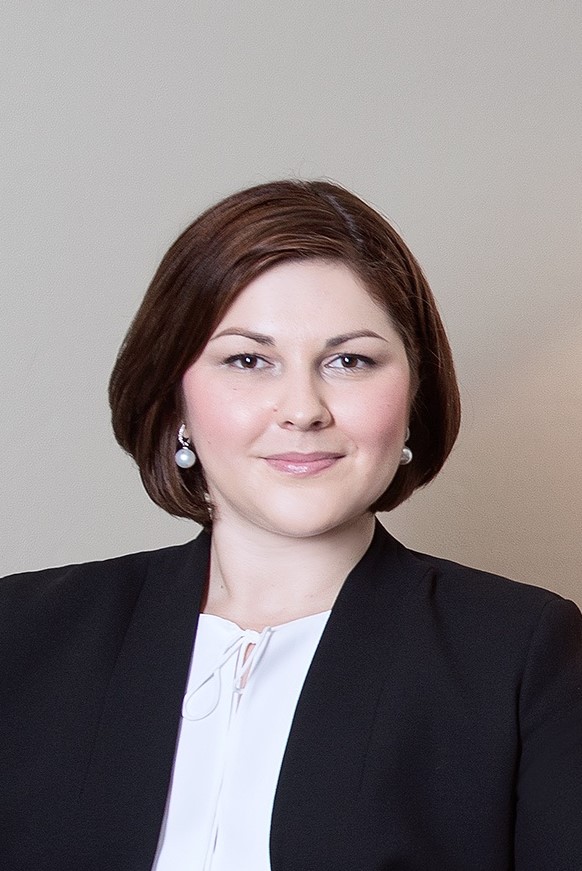The scope of intellectual freedom

The High Court has emphasised the importance and value of intellectual freedom. In so doing, the High Court noted that the right to exercise intellectual freedom ordinarily is not restricted by any asserted right of others to respect or courtesy. However, the exercise of intellectual freedom is not unqualified and is not akin to a right of free speech. Further, confidentiality provisions in a disciplinary process may be enforced without unlawfully restricting any right to intellectual freedom.
Background
Dr Peter Ridd was a long-standing employee of James Cook University, with some 27 years’ service, when his employment was terminated in May 2018 for ‘serious misconduct’. Prior to his termination, in the period between 2016 and 2018, the University took various actions against Dr Ridd, including issuing him with two ‘censures’, or warnings, and issuing him various directions, including directing him to keep various matters relating to the disciplinary process confidential.
Dr Ridd claimed that each action taken by the University in the period from 2016 to 2018, including his termination, contravened s 50 of the Fair Work Act 2009 (Cth), which provides that a person must not contravene a term of an enterprise agreement.
The relevant enterprise agreement was the now superseded James Cook University Enterprise Agreement 2013-2016 (Enterprise Agreement). Dr Ridd contended that the term which was contravened on each occasion was cl 14, titled ‘Intellectual Freedom’. The intellectual freedom protected by cl 14 included the right of University staff to participate in ‘public debate and express opinions about issues and ideas related to their respective fields of competence’ and to express ‘opinions about the operations of [the University] and higher education policy more generally’.
Dr Ridd’s case was that his actions, which resulted in the issuing of the censures and directions, were protected by cl 14 as, on each occasion, he was exercising his intellectual freedom rights. He did not deny the conduct occurred nor did he deny that, but for the intellectual freedom clause, his conduct breached the Code of Conduct and would have amounted to misconduct or serious misconduct under that Code.
His argument was that cl 14 of the Enterprise Agreement: precluded any finding that he had breached the Code of Conduct since the Code must give way to cl 14; invalidated every direction and censure issued to him by the University because he was exercising his intellectual freedom rights conformably with cl 14; and meant that his termination was unlawful.
The University’s position was that cl 14 had to be read with the Code of Conduct. The intellectual freedom protected by cl 14 was not outside the scope of the Code of Conduct.

Dr Ridd’s conduct
The first censure issued to Dr Ridd arose from an email that Dr Ridd sent to a journalist on 16 December 2015. In the email, Dr Ridd said that work ‘we have done recently’ indicates that the Great Barrier Reef Marine Park Authority (Authority) ‘is grossly misusing some scientific 'data' to make the case that the Great [B]arrier Reef is greatly damaged’. The email also said that the Authority and the Australian Research Council Centre of Excellence for Coral Reef Studies (ARC Centre of Excellence) ‘should check their facts before they spin their story’ and that ‘[m]y guess is that they will both wiggle and squirm because they actually know that these pictures are likely to be telling a misleading story – and they will smell a trap’.
The second censure was the result of a number of comments by Dr Ridd. The first of these was made on 1 August 2017 in an interview with Mr Alan Jones and Ms Peta Credlin on the television show ‘Jones and Co’, which was broadcast on Sky News, during which Dr Ridd said, among other things, that ‘we can no longer trust the scientific organisations like the Australian Institute of Marine Science even things like the ARC Centre of Excellence’ and that most of the scientists ‘who are pushing out this stuff ... I just don't think that they are very objective about the science they do. I think [they're] emotionally attached to their subject’.
The second censure also relied upon six other findings which the High Court found were not expressions of opinion within an area of Dr Ridd’s academic competence.
On 13 April 2018, the University made 18 findings of serious misconduct against Dr Ridd concluding that Dr Ridd's ‘behaviour in regards to each allegation, individually and collectively, is serious and destructive of the necessary trust and confidence for the continuation of the employment relationship’ and that ‘[i]ndividually, and collectively, the allegations demonstrate a pattern of deliberate Serious Misconduct’. The High Court found that none of these findings was in respect of expressions of opinions or ideas within Dr Ridd's academic expertise.
Federal Circuit Court
Dr Ridd commenced proceeding in the Federal Circuit Court. His arguments were accepted by Judge Vasta who concluded that various actions taken by the University, including his dismissal, were contrary to the Enterprise Agreement and awarded Dr Ridd over $1.2m in compensation and penalties: Ridd v James Cook University (2019) 286 IR 389; [2019] FCCA 997; Ridd v James Cook University (No 2) [2019] FCCA 2489.
Full Court of the Federal Court
The University appealed to the Full Court of the Federal Court. By majority (Griffiths and SC Derrington JJ; Rangiah J dissenting) the Full Court rejected Dr Ridd's arguments and concluded that none of the University’s actions was contrary to the Enterprise Agreement: James Cook University v Ridd (2020) 278 FCR 566; [2020] FCAFC 123.
The majority found that Dr Ridd had not been disciplined for the expression of his opinions but instead was disciplined having regard to the ‘correlative duty ... owed to his colleagues’ under the Code of Conduct (at [133]).
In dissent, Rangiah J held that ‘where there is conflict between a genuine exercise of intellectual freedom and a requirement of the Code of Conduct, the former prevails to the extent of the inconsistency’ (at [289]).
High Court Decision
Dr Ridd was granted special leave to appeal to the High Court. In a unanimous judgment, the High Court (Kiefel CJ, Gageler, Keane, Gordon and Edelman JJ) dismissed the appeal.
The High Court considered two issues of interpretation.
The first issue was whether, in the interpretation of cl 14, the intellectual freedom of staff members to debate, criticise and to express unpopular and controversial views should be qualified by the requirement in the Code of Conduct to afford respect and courtesy to others, which requirement was not replicated in cl 14.
The second issue concerned the conflict between, on the one hand, the intellectual freedom provided by cl 14 to express disagreement with decisions of the University and to express disagreement with the processes used to make those decisions and, on the other hand, the confidentiality requirements concerning University disciplinary processes imposed by cl 54.1.5.
Mr Ridd’s primary submission on the first issue was that the only restrictions upon the intellectual freedom in cl 14 were the express limit in cl 14.3 not to ‘harass, vilify, bully, or intimidate those who disagree’ and the requirement to act honestly in cl 14.5.
The High Court rejected this submission on the basis that it treated the intellectual freedom protected by cl 14 as though it were freedom of speech generally. The submission ignored the constraint upon intellectual freedom in cl 14.3, with the High Court noting that cl 14.3 repeated an undertaking in the Code of Conduct expressly requiring respect for the rights of others (at [20]).
Dr Ridd's alternative submission was that the only restrictions upon the intellectual freedom protected by cl 14 were those contained in that clause itself, which submission the High Court preferred.
The High Court noted that each of the qualifications upon the intellectual freedom in cl 14 was in identical, or very similar, terms to undertakings contained in the Code of Conduct. The High Court said that cl 14 ‘was drafted specifically to preserve those undertakings to which the intellectual freedom was intended to be subject’ and that two ‘notable’ omissions in the replication of the undertakings in the Code ‘reveal the policy adopted in the textual choices that were made’ (at [23]). The omissions were the duty to respect the ‘reputations’ of others and the duty to treat others, including staff members and members of the public, with respect and courtesy (at [24]-[25]).
The High Court noted that although the expression ‘intellectual freedom’ was not defined in cl 14, it was a concept with a long history, ‘the core content of which has crystallised over the last century’. The expression is often referred to interchangeably with ‘academic freedom’ and ‘intellectual academic freedom’ (at [29]). While different views might reasonably be taken about restrictions upon intellectual freedom, it has rarely been restricted by any asserted ‘right’ of others to respect or courtesy (at [33]).
As to the second issue of interpretation, the High Court found that there was no conflict between the intellectual freedom in cl 14 and the confidentiality of the University’s disciplinary processes. The confidentiality provisions serve the legitimate interests of all parties to the University’s dispute resolution processes and maintaining the integrity and efficacy of those processes. Those processes were not inconsistent with cl 14 of the Enterprise Agreement at [37], [39].
The High Court found that Dr Ridd should not have been given the first censure. However, the Court concluded that the litigation concerned conduct by Dr Ridd that went far beyond that of the first censure, almost none of which was protected by the intellectual freedom in cl 14. That conduct culminated in the termination decision, a decision which itself was justified by 18 grounds of serious misconduct, none of which involved the exercise of intellectual freedom (at [47], [65]).